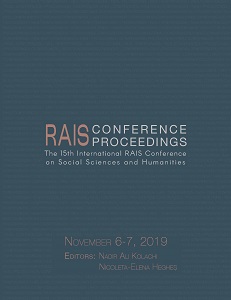The Stockholm Syndrome Psychosocial Varieties and Interdisciplinary Implications
The Stockholm Syndrome Psychosocial Varieties and Interdisciplinary Implications
Author(s): Nicoleta-Elena Heghes, Cristina-Gabriela Schiopu
Subject(s): Behaviorism, Victimology
Published by: Scientia Moralitas Research Institute
Keywords: abuse; behaviour; psychiatry; Stockholm; victimology;
Summary/Abstract: In august 1973, after the siege and the hostage situation in the Stockholm Sveriges Bank, caused by Jan-Erik Olsson, the entire psychiatric and psychological knowledges in the matter of victimology and posttraumatic stress disorder reached an unexpected level. After 6 days of siege, all the victims declared sympathy, emotional debt and gratitude, even infatuation towards the captor in contrast to hostility and fear towards the authorities. There are many hypotheses on this type of behavior; some believe that the syndrome is a temporary subconscious survival mechanism while other classify it as a mental disorder with pathological base that emerges in cases of psychological trauma. Since 1973, the symptoms of Stockholm syndrome have been recognized in other non-acute, abusive situations such as victims of domestic violence or child abuse with aspects of intergenerational transmission of violent behavior and heavy implications regarding the development of criminal behavior, potential therapy and social reinstatement of the victims. This paper will analyze the varieties of symptoms, the medical management, the characterization of both the victims and the offenders, highlighting the psycho-social foundation of this behavior, the interdisciplinary aspects and heavy implications of these situations, especially in secular, religious and patriarchic communities such as East European countries.
Book: Proceedings of the 15th International RAIS Conference on Social Sciences and Humanities
- Page Range: 66-71
- Page Count: 6
- Publication Year: 2019
- Language: English
- Content File-PDF

